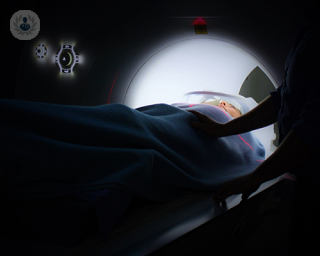Colon and rectum cancer
Mr Daniel Baird - Colorectal surgery
Created on: 06-11-2013
Updated on: 09-18-2023
Edited by: Conor Lynch
What is colon and rectum cancer?
Colon and rectum cancer, collectively known as colorectal cancer, is a serious health concern that affects the large intestine.

Are there any differences between colon and rectum cancer?
Colon cancer begins in the colon, which is the first and longest part of the large intestine. On the other hand, rectum cancer originates in the rectum. Both types of cancer share many symptoms, such as stomach or gas pains, constipation or diarrhoea, and black, dark, or red-colored stools.
What are the main symptoms of colon and rectum cancer?
The symptoms of colon and rectum cancer may vary depending on the size and location of the tumor. Common symptoms include a change in bowel habits (such as more frequent diarrhoea or constipation), rectal bleeding or blood in the stool, ongoing discomfort in the belly area (such as cramps, gas, or pain), a feeling that the bowel doesn’t empty completely during a bowel movement, weakness or tiredness, and unintentional weight loss.
What are the main causes of colon and rectum cancer?
The exact causes of most colon cancers are still unknown. However, it is believed that changes in the DNA of cells in the colon play a significant role. These changes cause cells to multiply rapidly and continue living beyond their natural lifecycle. Over time, these abnormal cells can form a mass called a tumour and invade healthy body tissue. If left untreated, they can spread to other parts of the body.
How are colon and rectum cancer diagnosed?
If you suspect you may have colon or rectum cancer, it is crucial to consult with a healthcare professional for an accurate diagnosis. The diagnostic process typically involves various tests such as a physical examination, blood tests, imaging tests (e.g., CT scan or MRI), colonoscopy (to examine the colon), biopsy (to collect tissue samples for analysis), and staging (to determine the extent of cancer spread).
How are colon and rectum cancer treated?
The treatment options for colon and rectum cancer depend on factors such as the location and stage of cancer. Surgery is often recommended to remove the cancerous growth. Additional treatments may include radiation therapy (to destroy cancer cells using high-energy radiation), chemotherapy (to kill cancer cells using drugs), targeted therapy (to target specific genes or proteins involved in cancer growth), and immunotherapy (to stimulate the body’s immune system to fight cancer).










